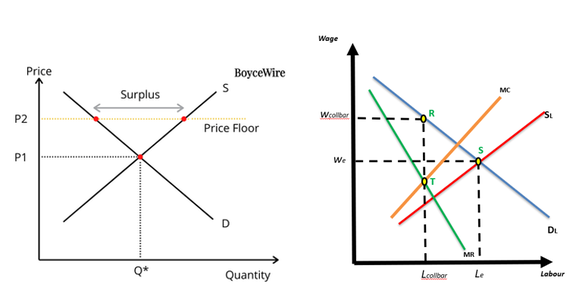In sport today we are familiar with terms such as salary caps, financial fair play, luxury taxes and squad/roster limits. It is less often once hears about the introduction of minimum wage laws, especially in soccer.
But this week the League of Ireland gave us one such example and demonstrated the influence that the players' trade union - the Professional Footballers Association of Ireland (PFAI) - has had on the game. This followed negotiations with FAI's National League Committee and representatives of the clubs.
From next season (2023) League of Ireland players over the age of 20 years of age will be entitled to a minimum weekly wage of €430. Players aged 19 years of age will be guaranteed at least €380 per week, with this falling to €330 for 18-year-olds and €280 for any player aged 16 or 17.
Players on part-time contracts will be entitled to a minimum of €130 per week. 19, 18 and 17 or 16 year old's are then entitled to at least €120, €105 and €90 per week, respectively.
The numbers are interesting for two reasons.
Firstly, the minimum wage in Ireland today for all workers aged 20 and over is €10.50 per hour. A standard 40-hour week would result in a gross payment of €420 - almost identical to League of Ireland players. Rates from those aged 16 to 19 vary from €7.35 per hour to €9.45 per hour and result in payments of €294 to €378 - again, almost identical to above.
Second, the economic theory is important. The standard price ceiling (left) and industrial union market structure (right) are presented below
The PFAI has been is able to achieve outcome “R” (on the right diagram) through collective bargaining. It results in higher wages but few players, at least in theory. Whether the players as a group are better off depends on whether the increases in salary outweigh the loss of employment. However, if you are one of the lucky players to play on these new terms of employment you are more likely better off than you were before.

 RSS Feed
RSS Feed